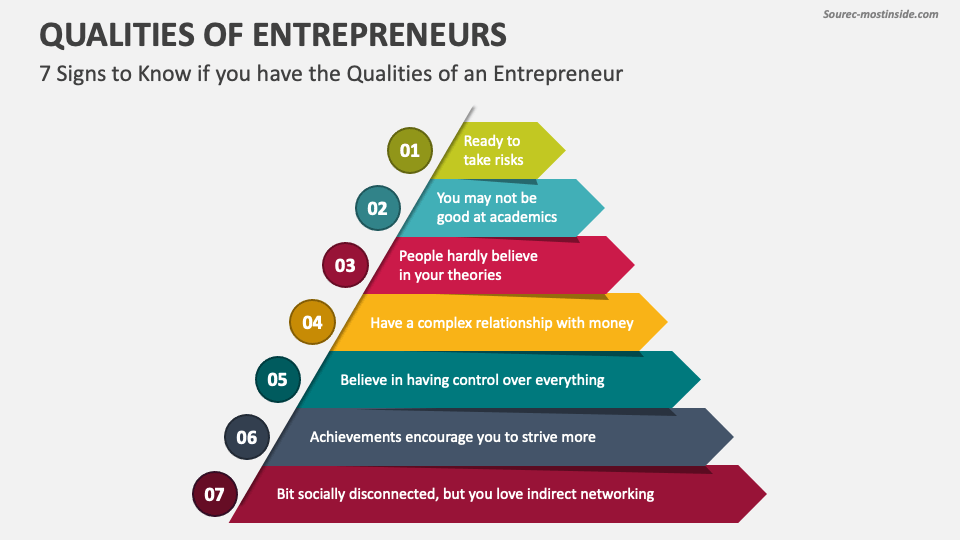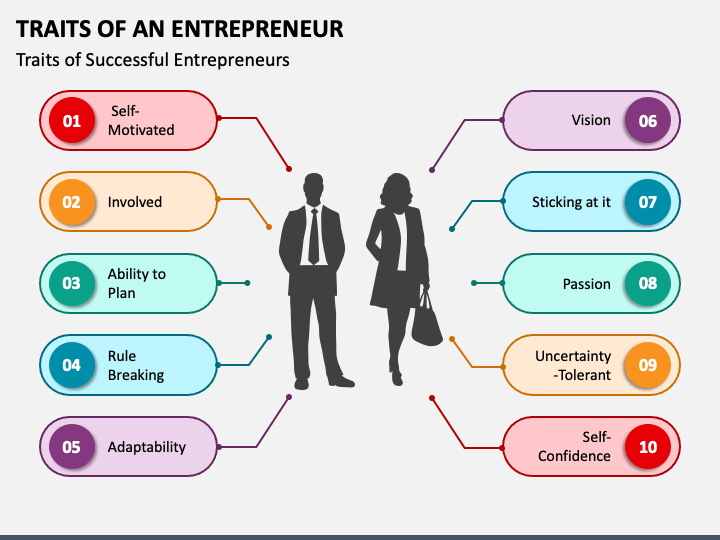What Are The Most Important Traits Of A Successful Entrepreneur

The entrepreneurial landscape is littered with dreams unrealized. Ventures fail, innovation stalls, and aspirations crumble, leaving many wondering what elusive qualities separate thriving entrepreneurs from those who fall short.
Beyond luck and circumstance, a core set of traits consistently emerges as critical for navigating the complexities and challenges of building a successful enterprise. This article delves into these essential attributes, drawing on research and expert opinions to paint a comprehensive picture of the entrepreneurial mindset.
The Unwavering Foundation: Passion and Resilience
At the heart of every successful entrepreneur lies a burning passion. This intrinsic motivation fuels the long hours, sleepless nights, and inevitable setbacks that define the entrepreneurial journey.
Professor Michael Porter of Harvard Business School emphasizes that this passion must be coupled with resilience.
"The ability to bounce back from failures, to learn from mistakes, and to persevere in the face of adversity is absolutely critical,"he notes in his research on competitive strategy.
Resilience isn't about avoiding failure; it's about viewing it as a learning opportunity and adapting accordingly.
Strategic Thinking and Vision
Entrepreneurs are not just doers; they are also strategic thinkers. They possess the ability to see the big picture, identify market opportunities, and formulate a clear vision for their ventures.
Peter Drucker, a management guru, famously stated that
"the best way to predict the future is to create it."This encapsulates the proactive and visionary nature of successful entrepreneurs.
They don't simply react to market trends; they anticipate them and create solutions that meet future needs. This involves market analysis, competitive intelligence, and a constant evaluation of the business model.
Adaptability and Learning Agility
The business world is in constant flux, and entrepreneurs must be able to adapt to changing circumstances. Adaptability is not simply about reacting to change; it's about anticipating it and proactively adjusting strategies.
A study by the Small Business Administration (SBA) found that businesses that actively adapt to market changes are significantly more likely to survive and thrive.
This adaptability is intertwined with learning agility – the ability to quickly learn new skills and knowledge. Entrepreneurs must be lifelong learners, constantly seeking to improve their understanding of their industry, their customers, and their competition.
Effective Communication and Leadership
An entrepreneur’s ability to communicate effectively is crucial for building a team, attracting investors, and engaging customers. It's not just about speaking clearly; it's about inspiring trust and conveying a compelling vision.
Leadership is also paramount. Entrepreneurs must be able to motivate and guide their teams, fostering a culture of collaboration and innovation.
According to John Maxwell, a renowned leadership expert,
"leadership is influence – nothing more, nothing less."This influence is built on trust, integrity, and a genuine commitment to the success of the team.
Financial Acumen and Risk Management
Understanding financial statements, managing cash flow, and making sound investment decisions are essential for any entrepreneur. Financial literacy allows entrepreneurs to make informed choices and avoid costly mistakes.
Furthermore, successful entrepreneurs are adept at managing risk. They are not reckless gamblers, but they are willing to take calculated risks to pursue opportunities.
They carefully assess the potential downsides of a venture, develop contingency plans, and are prepared to pivot if necessary. Risk management is about mitigating potential losses while maximizing potential gains.
The Ethical Imperative
In today's interconnected world, ethical behavior is not just a moral imperative; it's a business necessity. Consumers are increasingly demanding transparency and accountability from businesses.
Companies with a strong ethical foundation are more likely to attract and retain customers, build a positive brand reputation, and foster long-term sustainability. Ethical decision-making should be at the core of every entrepreneurial venture.
Laura Nash, a professor of business ethics, argues that
"ethical leadership is not just about following the rules; it's about creating a culture of integrity."
Looking Ahead: The Entrepreneur of the Future
The traits discussed above represent a timeless foundation for entrepreneurial success. However, the entrepreneurial landscape is constantly evolving, demanding new skills and capabilities.
The entrepreneur of the future will need to be increasingly adept at leveraging technology, fostering global collaboration, and embracing social responsibility.
By cultivating these essential traits and adapting to the changing world, aspiring entrepreneurs can increase their chances of turning their dreams into reality and making a lasting impact on the world.


















